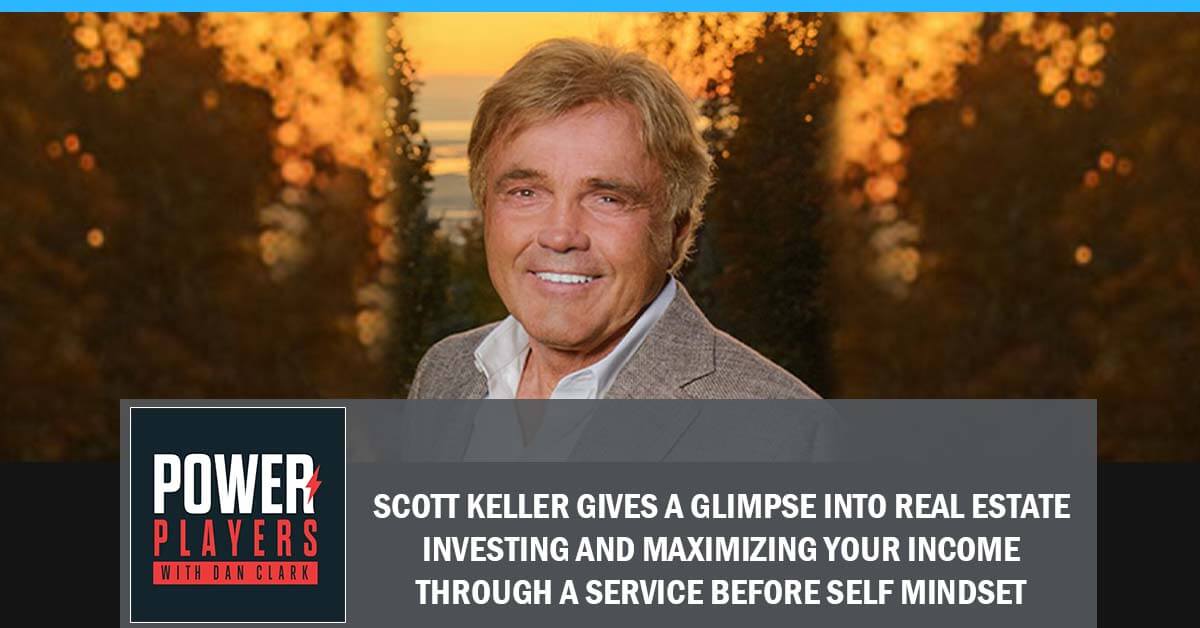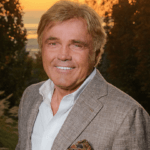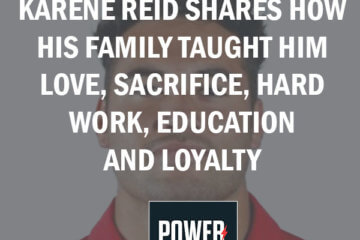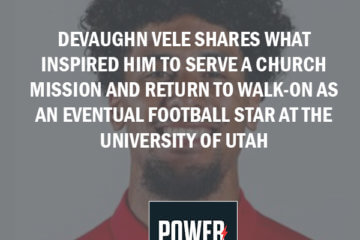Listen to the podcast here:

The best way to find yourself is to lose yourself in the service of others. Scott Keller, founder of Keller Investment Properties, has found his success in the integrity of his process. Scott has managed to develop thousands of apartment complexes throughout the intermountain west and donate millions of dollars to universities, community charities, and national political campaigns. Scott sits with Dan Clark as he shares his life and his climb to the top of his profession – giving us an inside glimpse into his secret sauce in real estate investing and maximizing your income through a service-before-self mindset. Listen in and learn how to make a huge difference like Scott has in our communities.
—
Scott Keller Gives A Glimpse Into Real Estate Investing And Maximizing Your Income Through A Service Before Self Mindset
In this episode, Scott Keller has developed thousands of apartment complexes throughout the Intermountain West. He has donated millions of dollars to universities, community charities and national political campaigns. He shares his life, and climbs to the top of his profession, giving us an inside glimpse into his secret sauce in real estate investing and maximizing your income through a service-before-self mindset so you can make a huge difference exactly as he does in our communities.
—
Scott C. Keller, welcome to the show.
Thank you, Dan. I will send you your check a little later on.
I started to gag myself. This bio was so amazing. I hope the readers appreciate where you have come and how far you are going. Maybe even before this episode is over, you are going to reach that billionaire status. This might not come out in your humility, but as I have known Scott for all these years as one of my heroes, he believes that you are supposed to make as much money as you possibly can. It’s to do the right thing and leave everybody around you better than they were when you met them. I pay tribute and honor you.
Let’s get right to some questions. The three Ps that make anyone a power player in every generation are Passion, Preparation and then Pursuit of that passion and pursuing excellence in all you do. Let’s talk. Question number one, how did you find your passion for getting into the real estate investment world, particularly in multifamily housing and apartments?
The only security that one has in themselves is how they cultivate their own skillset.
I learned early that the only security that one had in themselves was how they cultivated their own skillset. Someone told me there was no such thing as job security, and I fell victim to that. I sensed how I was subjecting myself to the dictates and whims of a boss, who would only pay me what he thought I was worth, and I surely wasn’t going to make more than himself.
I had an idea of what that was and thought, “I would like to do better than that. In fact, I would like to do better than his boss. What level does one shoot for when you say President, CEO, or Chairman of the Board? What does he make? What would that be like and that which one can perceive can be achieved?” I realized that in my earlier career at Ryder Systems.
As wonderful of an opportunity as that was for me, it enabled me to look forward and look beyond the moment and say, “I think I can do better.” Hence, it’s the reason I started developing supplemental income. I had created a level of financial security for myself and didn’t fall victim to the dictates and whims of a boss. I invested in real estate, knowing that historically, real estate will grow in value.
My father had rental homes growing up in Las Vegas. When I was first married, I thought, “What am I going to do? How am I going to pay the bills? I don’t have 3 or 4 other roommates to share the rent with. I need to figure something out.” I always had a second job, working on weekends. That thing is supplemental income and I never spent it. I just invested it and eventually grew into a sizeable portfolio.
That brings another great question up. You mentioned your dad a little bit. Who inspired you to prepare? What did you specifically do to prepare yourself to take on these risks and challenges, think bigger, and play bigger than most of the folks around you?
I’m a numbers guy. I’m always doodling with numbers. To run a major corporation, you don’t have to understand geometry unless you are in the sciences or engineering. To run a normal business, if you can write 1/2 or 1% in decimal form, understand the value of the ratio, fraction and percentage, and have comparables to measure your growth and profitability, that becomes a passion. To enhance your mathematical skills, that might be 8th or 10th grade Math, but if you can become keen at simple equations, you can run any major corporation in America and understand the ratio of profitability or not or how profitable one would like to be.

Service Before Self: To be a power player in every generation, you need passion, preparation, pursuit of that passion, and pursue excellence in all you do.
I love the adage, “When performance is measured, performance improves.” I measure everything I do daily, a return on investment, return on time, return on people or return on asset. I have different measures that say, “I’m doing good or I’m not doing as well as I would like.” I’m constantly comparing that and driving those numbers to hit the objective, whatever that is.
I have interviewed other billionaires on this show. Most billionaires that you, me, and most people in the world can rattle off acquired their wealth by having someone come in and purchase their company for $1.3 billion or $2.8 billion. You have acquired and generated your wealth organically from your very first rental property in continuous growth and return on your investment, which is so incredibly impressive. That puts you on a completely different level as a power player. It’s the reason you are on this show. Here’s the question. Did you ever fail? What did you do about that failure to get back up and go again?
You have to really try to succeed in anything that interests you or anything you’re passionate about.
I have thought about this a lot for some reason. I’m sure I have failed at something, but I have got to think hard at something that I haven’t succeeded at in a significant way that I have tried and wanted to succeed. Anything that interested me or that I was passionate about, I eventually figured it out. It may have taken me a little longer than some, but I eventually figured it out. If you do it, you own it. My pursuit has not been pulling my bootstraps up and trying something that would work. My pursuit has been slowly, steadily, consistently, and persistently pushing along. When times get tough, I grab it and start pulling hard. I have always had that in me to keep pursuing.
In my youth, I grew up with tough circumstances and a very strict father. With that, as much as it was unpleasant at that time and unpleasant to think back on at times, I think, “I can do anything because nothing was as tough as that.” It gave me the drive to say, “I can do hard things and so can everybody else because, as the adage goes, ‘Hope for the best and expect the worst.'” With that, I don’t think I’m ever let down too much because I have thought it through and realized, “Things may not always go as well as we hoped, but we can fix it and make it better. If it doesn’t succeed at first, don’t give up. Keep trying.”
In 2008 and 2009, when the economy was falling apart, all we heard on the news were recession lines, soup lines, and depressions of 1933. The politics of the day were different than we were accustomed to. Who knows what was about to happen? I was building a very expensive home that I went two and a half times over budget. I never pulled back one day and laid off a single person. Our occupancies and revenues dropped straight across the board in the portfolio. The only way to survive was to take a look at that big picture and say, “Manage the midline expense.”
We took a look at what we could do, hold off and duct-tape. Recessions typically last 6 to 9 months. In 2008, it was eighteen months, “Don’t panic. Everyone, lock arms and figure it out.” We managed the midline expenses. Our cashflows went up even with lower occupancies and revenues. You learn good habits in bad times, and bad habits in good times by managing things as tight as you possibly can because you can’t drive revenue and occupancy any better than the market would allow.

Service Before Self: To succeed at something, you need to learn to slowly, steadily, consistently, and persistently push along. And when times get tough, start pulling hard.
Those that think the money is to be made on the outside are sorely mistaken. The money to be made is on the inside, where you can enhance efficiencies and drive profits with something you already have without having to go out, invest more, take on more risks and debt, and buy more supply, equipment and inventory. If you look at what you have and drive efficiencies, you would be surprised what you can do without having to invest one single dollar.
I’m sitting here and applying that to our personal relationships, sports teams, and any endeavor in which we are involved if we follow your advice there, “You never lose if you always learn.” I was reminded of a famous quote about Thomas Edison. Everybody says he failed 9,999 times before he invented the electric light bulb. What you taught the world is their truth about Edison. He knew that inventing the electric light bulb was a 1,000 or 10,000-step process. He never gave up until he had accomplished his goal. That’s what you reminded us about.
Let’s change directions a little bit more into that preparation side. If we have lots of young entrepreneurs tuning into the show, you have said, “Understand basic mathematics and hang around with the right people who say you can’t quit. It’s a league rule.” Is there any other advice that you could give a young entrepreneur, small business owner or even a major corporation that you had discovered that you shared when you donated $10 million for the new business building at the largest university in the State of Utah? I’m milking from you your famous three-step process. Please share that with the world.
I sit on the National Advisory Board at UVU in several of those meetings. I listen to all of these very smart and successful CEOs that are on that committee. I made a comment, “What a wonderful thing this would be for students to be sitting in an overhead and listening to this dialogue through the day to hear all these successful people speak, give comments, ask questions and respond.” I was thinking, “That’s a class in and of itself and an experience that ought to be replicated. It’s natural, on the fly, not prepared and the way people are.”
You learn good habits in bad times and bad habits in good times.
For young people, I made a comment, “Often, we go to college to get a degree, but often we are getting a degree to get a degree and not a degree in something that we are interested in and know how.” I thought that we ought to have classes in the college curriculum that would test everyone’s aptitude, find out what their interests are, and provide them with knowledge and opportunity that are out there that they may be able to pursue according to their own skillset.
Many people have skills. I have friends that graduated magna cum laude in law school and can’t rub two nickels together. There are smart people, but their applications are not so smart that they don’t have a skillset with people. Some people are social buffoons, and they are smarter than a whip, but they aren’t given the opportunity to channel what they have to offer. Often, in the curriculum of the day, people, students, and prospective entrepreneurs don’t know what opportunities await them.
Somehow, there ought to be something provided for those that are aspiring to be successful in their lives to have a complete study of what opportunities are out there so that they will know what to pursue. Otherwise, they are guessing. They pursue something that maybe they are successful at or not, but they could have been much more successful had they been given the knowledge and opportunity of what is there for them to pursue that is best aligned with their own skillset.
As one starts out in pursuit of business, they need to understand where their skillset is, what is available and what works. They need to ask a lot of questions and surround themselves with greatness and successful people. Do you want to fly with the seagulls or soar with the eagles? You will soon find that we all rub off on each other in some fashion. Sometimes it’s edifying and wonderful. Sometimes it’s not so good.
We have to be careful about the environment we place ourselves in and those people that we surround ourselves with because we hope that they will inspire us and we will inspire them so that synergistically, one plus one will equal three. It’s true. I have been blessed with many friends and wonderful opportunities, one of which is philanthropic.

Service Before Self: Anyone who’s successful loves to share their experiences on what works and what doesn’t work, because their natural tendency is to save you the pain and suffering that they went through that took them years to figure out.
That’s the last P, Pursuit of excellence in all that you do. I want to talk about your philanthropy. Raising more money for the Mitt Romney presidential campaign, and being one of your dear friends, I watch how gracious you are with the resources that you are able to generate and how you build people up. Let’s talk a little bit about why you have become a philanthropist.
It’s tied into the last question that I have asked every guest on my show. That is taking a leaf from Professor Randy Pausch, who came up with the speech, Last Lecture. He was battling cancer. If you had one message to the world and it was your last lecture, tie it into philanthropy, why and how each of us needs to give more than we take?
I learned how to serve in fulfilling philanthropic purposes by getting involved politically, interestingly enough. In 2008, I was raising money to help Mitt Romney, and I’m not a politician, but I was passionate about helping him succeed and then again in 2012. In so doing, you make or lose a lot of friends when you ask for their money.
It got to a point where I was asking people to donate money for a cause that I had nothing to benefit from. I worked for free. I was donating my time. I learned how to get indoors, ask and close, or commit people to donate for a cause that they would be in agreement with. The political aspect of it grew into philanthropic to where I got involved.
The by-product was not just the cause. The by-product were friendships, networking and opportunities to learn from all these other successful people. I encourage young people. If you want to network, find out what is available and understand from the experience of others why this is the man who does not make mistakes on his own, you learn some mistakes from others, and they will share those mistakes.
Things may not always go as well as you hope, but you can always fix it and make it better.
Anyone who is successful loves to share their experiences on what works and what doesn’t work because their natural tendency is to say, “Let me save you some time and money. Let me save you the pain and suffering that I went through that took years to figure out. Here’s one thing you don’t do.” It’s generally a two-minute conversation with those little things that oftentimes take years to learn and understand. You can be told you can read in the book, but nothing trumps experience.
You can learn many things by asking questions from successful people that will save you from making a lot of the same mistakes. If you surround yourself with these people, it’s inspiring and you want to be like them. Chances are, they will provide a job opportunity for you. These all come by being politically and philanthropically involved in your community. I was too immature to understand that in my earlier career in my 20s and 30s, but I caught onto it.
It’s rare that either one of us goes to one gala or another event that we don’t run into each other. It’s a wonderful thing. I was invited by Scott Anderson, the CEO of Zions Bank, to attend a wonderful gala, The Junior Achievement. I looked around the room there. There’s Ron Gibson, Jay Francis, Scott Anderson, myself and a bunch of former alumnus Father of the Years.
You see, good begets good. Once you catch hold to these different philanthropic ideas or concepts, the spirit of that takes over. All of a sudden, we become it. It was Caesar who said, “Assume a virtue, if you have it not.” I didn’t know how to serve. I learned to serve by doing, and now it’s in me. It’s part of who I try to be for the right reasons. It’s not quid pro quo. I do it because I enjoy it and love seeing people.
As a closing message, you are teaching the world, especially young entrepreneurs, the secret to networking at the highest level. Learning to influence the affluent is to give up our time to get involved in a charitable organization to be philanthropic. As you reminded me and the world, it’s amazing when you hang around in the right causes and get involved. If you look left and right, those are truly the power players in our communities and the world. What a great place to create friendships, and that’s how you and I met at the very beginning all those years ago.
When a man gives his money, he gives much. When a man gives his time, he gives much more. When he gives both, he gives all.
Ladies and gentlemen, Scott C. Keller is one of the great human beings on our planet. By the time I get him on this show again, he will be a legitimate billionaire grown organically through his wisdom and business savvy. There you have it, a power player who has taught us his irrefutable truths that apply to families. Relationships with significant others and our spouses, you don’t give up. You make it work and figure out what to do in your small business.
You figure out what to do to fix our community, country and world. Scott C. Keller, you are the tip of the spear leading the way. As I conclude this episode, please remember that when you finally decide to be a power player, your power play begins in you. Until next time. Quantify your takeaway and go make a power play. Thanks for joining me, Scott. Have a great day.
Thank you very much.
Important Links:
About Scott Keller
 Over the past 35 years, Scott C. Keller has developed and refined his unique approach to real estate investing. He started in purchasing and operating single family rentals. Scott then built on this experience to found Keller Investment Properties (KIP) and create an expansive and diverse multifamily investment portfolio which spans the western states. Scott has found his success in the integrity of his process. He approaches each asset with the individuality it deserves in tailoring the capital improvements, staffing, and marketing strategies to the unique markets and demographics of every apartment complex he purchases.
Over the past 35 years, Scott C. Keller has developed and refined his unique approach to real estate investing. He started in purchasing and operating single family rentals. Scott then built on this experience to found Keller Investment Properties (KIP) and create an expansive and diverse multifamily investment portfolio which spans the western states. Scott has found his success in the integrity of his process. He approaches each asset with the individuality it deserves in tailoring the capital improvements, staffing, and marketing strategies to the unique markets and demographics of every apartment complex he purchases.
He has built a corporate team with a breadth and depth of experience in management and finance that implements his high-level vision alongside the talented site teams at each property. His approach of treating his team as family carries forward to the residents of all Keller Investment Properties who are treated with respect and appreciation. In addition to institutional-sized apartment communities, Scott’s personal investment portfolio has included retail centers, hospitality, raw land, and hotel properties, and currently includes student housing, senior housing, majority ownership in the Bronze Buffalo Sporting Club at Teton Springs, Cove River Ranch fish hatchery, Keller Luxury Homes, and private equity investments. Scott adds his influential style to each venture he undertakes.


